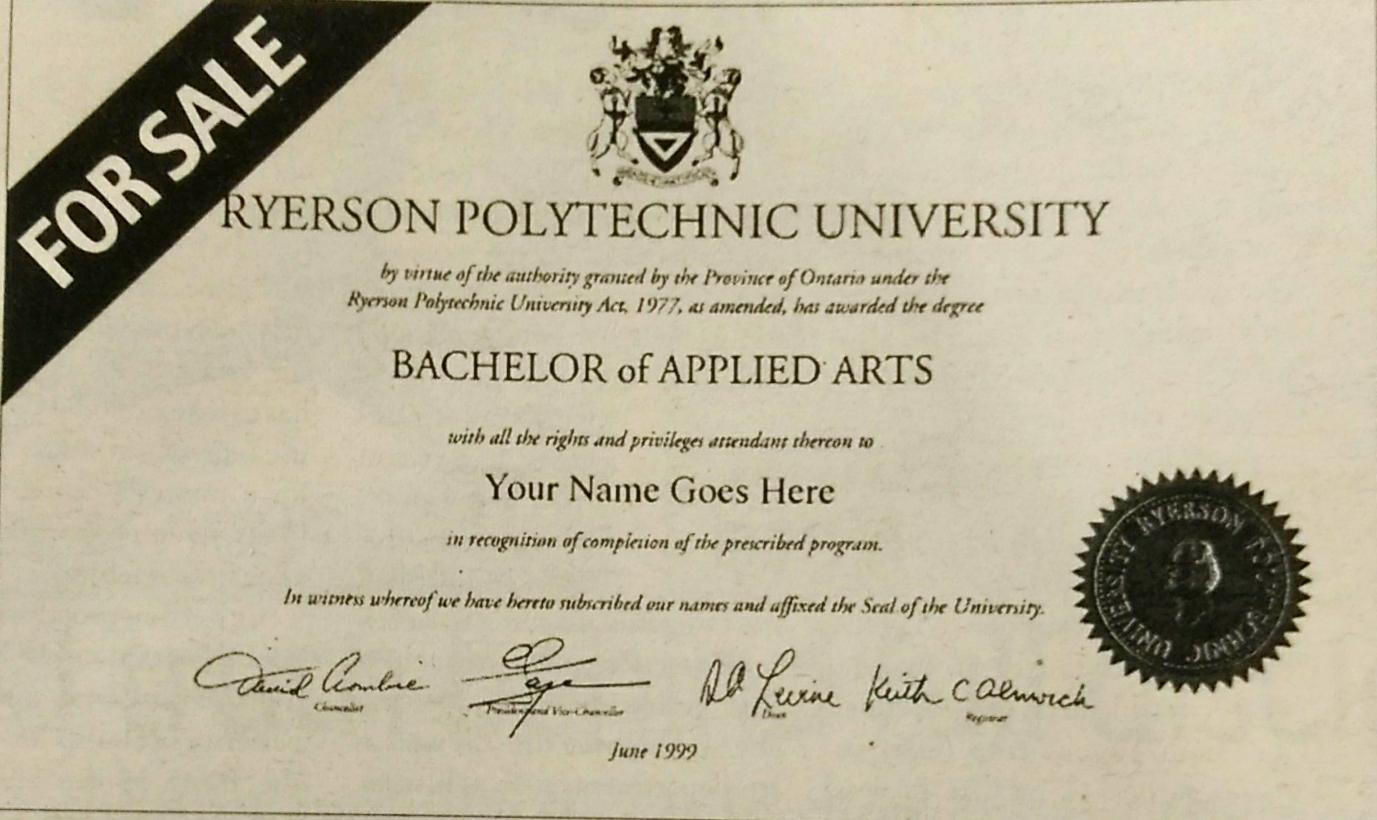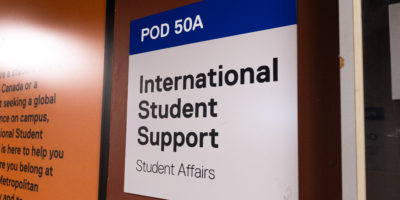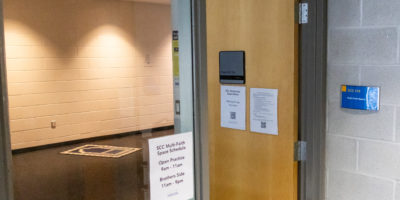By Emily Yearwood
There’s a new solution for Ryerson students who crave a degree, but don’t want to earn one. The only problem is, it’s probably illegal.
College-Degrees.to1999, an Internet-based company, advertises fake university degrees and transcripts for $250 each. When students visit the company’s Web site, www.college-degrees.to, they can browse a list of more than 2,000 universities and colleges, including York University, the University of Toronto, and yes, even Ryerson.
Students can send an email to the address listed and then wait for a response.
According to the site, “these degrees and certificates are extremely realistic in every aspect.”
The fake documents include stickers — which are removable — identifying them as novelty items.
A U of T official recently alerted Ryerson registrar Keith Alnwick to the site. The official told him several U.S. schools are taking the company to court.
Alnwick says he won’t seek legal advice yet, although that would change if someone tried to use a falsified Ryerson document. “That would be an instance of fraud in academic court and that would be pursued with full vigour,” Alnwick said.
Ryerson v.p. academic Dennis Mock didn’t know about the site until it was brought to his attention by The Eyeopener. He says he will raise the issue with a lawyer this week.
Sue Bloch-Nevittee, U of T’s director of public affairs, says the company is violating her university’s trademark on its name and crest. The university’s lawyers are looking into the matter and they will consider using a cease-and-desist order.
“We would not take kindly to the notion of anybody creating a novelty document based on our degree,” she said.
The company’s site says, “All of our Degree’s [sic] comply with the 1983 novelty document act.” But after an extensive search, Sue Barker, a reference librarian from U of T law library, failed to find any such law in Canada, the United States or Britain.
Bloch-Nevittee says that means the company’s actions aren’t protected in Canada.
“If the company is based on the Internet and it [the Web site] can be read and business can be done in Canada, it could be in violation of trademark laws in Canada,” she said.
The site also says the company’s logo is a registered trademark of Canadian Document Suppliers. But Janet Aitken, advertising manager for Xerox Canada Ltd., says she had never heard of the company.
Database searches of registered companies in Canada, the United States and Britain failed to find a company with a similar name.
Even more mysterious is the fact that the Web site is hosted by an Internet domain in the South Pacific. College-Degrees.to1999’s Web site is administered by Tonic, the official Internet service provider [ISP] of the Tonga Islands, a tiny nation east of Fiji.
Tonic is one of the few ISPs in the world that will not divulge its clients’ identity. In a phone interview from his office in Tiburon, Calif., Tonic v.p. communications Bob Cullinan, says his clients appreciate the anonymity provided by Tonic’s .to domain.
“If you have a .com [address], anyone can find out who you are,” he said. About half of the company’s clients are American, he said, and the rest are scattered around the world.
The Web site’s company could not be reached for comment because it’s identity was protected.
Jordan Worth, and Internet analyst, for International Data Corporation Ltd., says although it’s sometimes possible to get tight-lipped ISPs to identify their clients, some locations such as Tonga are nearly untouchable. “If it’s in Tonga, it’s pretty unlikely you’ll get the help of local authorities,” he said.













Leave a Reply